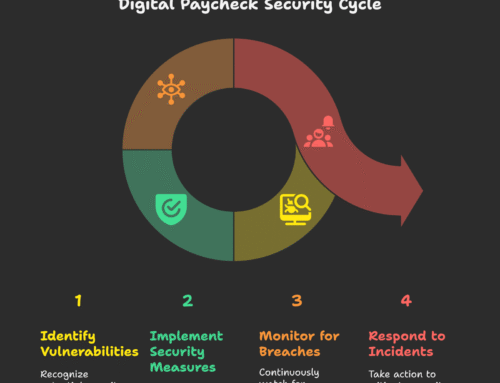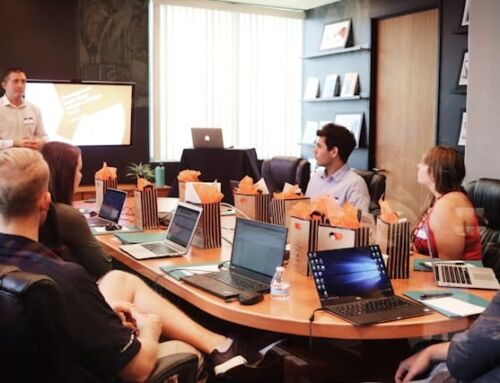Modern businesses are expanding rapidly, hiring talent worldwide to create diverse teams with fresh perspectives. However, this global approach introduces a major challenge: language barriers.
When HR teams manage employees who speak different languages, simple tasks become complex. Job interviews get confusing. Training materials lose meaning. Company policies become unclear. These issues can harm your business in unexpected ways.
Professional translation services offer a solution. They help HR teams communicate clearly with employees worldwide, creating better experiences for everyone involved.
Image by Freepik
The Hidden Challenges of Global HR Management
Managing people across different countries brings unique problems that many HR leaders don’t anticipate. These challenges affect every part of the employee journey.
Communication breakdowns happen everywhere. Hiring managers may miss great talent due to language misunderstandings. New employees struggle with onboarding materials. Training content loses clarity, reducing productivity.
Cultural misunderstandings create bigger problems. Direct translations often miss cultural nuances. A motivational message that works in one country might offend in another. Company values that inspire American workers might confuse employees in Japan or Germany.
Legal and compliance issues multiply. Employment laws vary by country. Poorly translated HR documents can lead to legal risks. Employees may misunderstand their rights or responsibilities, creating liability issues.
Technology platforms become barriers. Most HR software is designed for English speakers. International employees may struggle to navigate these systems, limiting access to benefits or required tasks.
These problems cost money. They increase turnover, reduce productivity, and damage company culture. Many organizations underestimate how much language barriers hurt their bottom line.
The Impact of Language Barriers on Employee Experience
Language barriers don’t just create minor inconveniences—they fundamentally change how employees experience their workplace.
New hires struggle from the start. Poorly translated onboarding materials leave new employees confused and disconnected. They may not fully understand job expectations, benefits, or company culture.
Career growth becomes limited. Employees who can’t fully participate in training programs or performance reviews miss advancement opportunities. This creates unfair advantages for native speakers and frustrates talented international workers.
Team collaboration suffers. Ineffective communication during meetings or projects reduces productivity. Important ideas get lost in translation, and decision-making slows.
Employee engagement plummets. Workers who feel excluded due to language barriers become less invested in their jobs. They’re more likely to leave, increasing turnover costs and losing valuable knowledge.
Research shows that companies with poor cross-cultural communication see 23% higher turnover rates and 19% lower productivity compared to organizations with strong language support systems.
The Linguistic Solutions for Global HR
Professional translation services offer specific solutions for each HR challenge. These services go beyond basic translation to address cultural nuances and industry-specific needs.
HR Document Translation
HR documents require careful translation to maintain legal accuracy and cultural appropriateness. Professional translators understand employment law terminology and cultural expectations in different countries.
Essential documents include:
- Employment contracts and legal agreements
- Employee handbooks and policy manuals
- Benefits guides and enrollment materials
- Performance evaluation forms
- Safety procedures and compliance documents
- Internal newsletters and announcements
Professional translation ensures these documents retain their original meaning while adapting to local legal requirements and cultural norms.
On-Demand Telephone Interpreting
Job interviews are critical moments that determine hiring success. Language barriers during interviews prevent accurate candidate assessment and create unfair disadvantages.
Telephone interpreting services provide immediate access to professional interpreters who understand technical terminology and industry-specific language. This allows HR teams to:
- Conduct thorough interviews with any candidate
- Reduce hiring bias based on language skills
- Access global talent pools effectively
- Ensure fair evaluation processes
- Speed up recruitment timelines
Video Remote Interpreting
As remote work becomes standard, video meetings are essential for team collaboration. Video remote interpreting (VRI) ensures language differences don’t hinder productivity during virtual interactions.
VRI supports:
- Team meetings and project discussions
- Training sessions and workshops
- Performance reviews and feedback sessions
- Company-wide announcements
- Cross-departmental collaborations
Real-time interpretation maintains the natural flow of video conversations while eliminating communication barriers.
Translation Earbuds for Real-Time HR Interactions
In addition to traditional translation services, innovative technologies like AI translation earbuds are transforming HR operations by enabling seamless, real-time communication. These compact devices provide instant translation during face-to-face or hybrid interactions, making them ideal for dynamic HR settings.
Translation earbuds support:
- In-person interviews with international candidates, ensuring clear communication without delays.
- Onboarding sessions, helping new hires understand policies and expectations in their native language.
- Training workshops, allowing participants to engage fully regardless of language proficiency.
- Casual workplace interactions, fostering inclusivity and collaboration among diverse teams.
By integrating advanced AI and speech recognition, translation earbuds reduce reliance on external interpreters for spontaneous conversations, saving time and costs while enhancing employee engagement.
Culturally-Informed Brand Transcreation
Your employer brand represents your company’s values and culture. Simple translation often fails to capture the emotional impact of branding materials across different cultures.
Transcreation adapts content to resonate with specific cultural audiences while maintaining brand consistency. This process ensures your employer brand attracts the right talent in every market.
Brand materials that need transcreation:
- Career website content and job postings
- Recruitment marketing campaigns
- Employee success stories
- Company mission and values statements
- Diversity and inclusion messaging
HR Platform Localization
Technology platforms must work for all employees, regardless of their language or location. Comprehensive localization adapts software interfaces, processes, and content for specific markets.
Localization includes:
- User interface translation
- Date, currency, and measurement format adjustments
- Automated email and notification translation
- Cultural adaptation of assessment tools
- Region-specific compliance features
Building an Inclusive Global Workplace
Creating truly inclusive international workplaces requires strategic planning and ongoing commitment to breaking language barriers.
- Assess your current communication gaps. Review all HR materials and processes to identify where language barriers might exist. Survey international employees about their communication experiences.
- Prioritize professional translation services. Invest in specialized HR translation rather than generic or automated options. HR content requires industry expertise and cultural sensitivity.
- Support key employee touchpoints. Focus language support on critical moments like recruitment, onboarding, training, and performance reviews where communication problems have the biggest impact.
- Train managers on cultural communication. Help supervisors understand how cultural differences affect workplace interactions and communication styles.
- Gather ongoing feedback. Regularly ask international employees about their communication experiences and adjust your approach based on their input.
- Localize your technology stack. Ensure all HR systems work effectively for employees in different countries and languages.
- Balance global consistency with local adaptation. Maintain core company values while adapting policies and communications to respect local cultures and legal requirements.
Conclusion
Companies that eliminate language barriers create competitive advantages that extend far beyond simple communication improvements. They access larger talent pools, build stronger international teams, and create more inclusive workplace cultures.
The most successful global organizations understand that language services aren’t just operational expenses—they’re strategic investments in human capital. When employees can fully participate in their workplace regardless of their native language, everyone benefits.
Professional translation services transform potential communication barriers into bridges that connect global workforces. Companies that make this investment see measurable improvements in employee satisfaction, retention, and productivity.
Ready to transform your global HR operations? Consider partnering with specialized language service providers who understand the unique challenges of international workforce management. The investment in clear, culturally appropriate communication will pay dividends in employee engagement and business success.
Looking to break down language barriers in your HR operations? Professional Timekettle translation earbuds can instantly help you create more inclusive workplaces and access global talent more effectively.







Leave A Comment